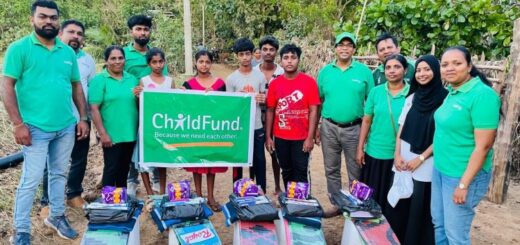Huawei and IUCN Launch Tech4Nature Project with Kenya Wildlife Service to Protect Coral Reefs

Huawei, International Union for Conservation of Nature (IUCN), and local partner Kenya Wildlife Service (KWS) have launched a Tech4Nature project to monitor and protect coral reef and biodiversity in Kenya’s Kisite-Mpunguti Marine Park and Reserve.
Aligned with Huawei’s TECH4ALL initiative and the IUCN Green List, the objective of the three-year project is to strengthen monitoring and management efficacy of the protected area. Located on the southern coast of Kenya, Kisite-Mpunguti Marine Park and Reserve faces a number of nature conservation challenges.
“Tech4Nature is an expansive project that falls under Huawei’s digital inclusion initiative TECH4ALL, where we look at ways to implement technology and innovation in various sectors of our day today life and improving global standards and ensure that we have a sustainable way of life in the world,” said Khadija Mohamed, Director of Media and Government Relations for Huawei Kenya.
Underwater cameras, photogrammetry, and audio monitoring technologies will be deployed to monitor marine life, including the biomass and population of parrot fish. In many coral reef ecosystems, parrot fish are a keystone species that, due to their diet, help prevent coral from being smothered by seaweed and algae. The solution will also monitor substrate cover in the reef ecosystems, seagrass cover, and the occurrence of green turtles and bottlenose dolphins, which are classified on the IUCN Red List as endangered and vulnerable, respectively.
“The technology we are introducing is a groundbreaking development for marine conservation in Kenya. It will serve as the first monitoring tool for data collection, analysis, and management in a marine protected area. Additionally, this innovation presents an opportunity to assist the park in attaining IUCN Green List certification, aligning with the sustainability goals valued by tourists and ensuring that future generations can continue to benefit from our marine parks,” said Innocent Kabenga, Country Representative for the IUCN Kenya Country Office.
AI trained to recognize specific target species by sight or sound will provide real-time data-driven insights into the behaviors, populations, and distribution of biodiversity in the reserve and reef ecosystem. The system will also be able to identify boats used for illegal fishing, and send alerts for rangers to intervene in near real time.
A digital power solution and improved network connectivity covering the park and watch tower will enable the rapid transmission of collected data to a cloud server for analysis by AI.
The project will be implemented in partnership with Kenya Wildlife Service (KWS) and Wildlife Research and Training Institute (WRTI). Based on the project’s data-driven insights, the Tech4Nature partners will be able to develop targeted conservation measures for the reserve.
In addition, the project will include community outreach to raise awareness about biodiversity changes over time and the presence of different species, including those that are threatened, vulnerable, or endangered. The site will be assessed against the IUCN Green List Standard, with the goal being that the reserve obtains Green List certification.


Recent Comments